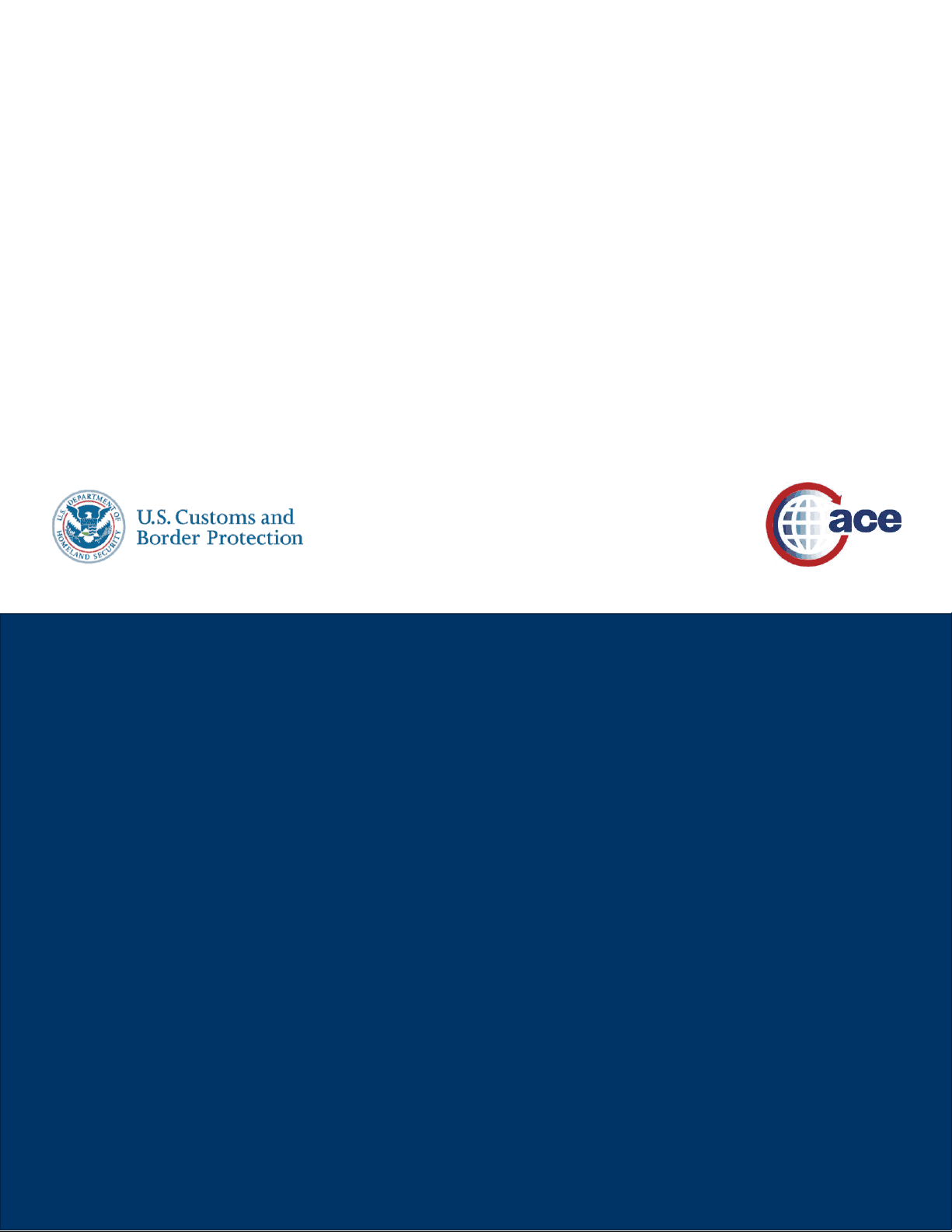



Study with the several resources on Docsity

Earn points by helping other students or get them with a premium plan


Prepare for your exams
Study with the several resources on Docsity

Earn points to download
Earn points by helping other students or get them with a premium plan
Community
Ask the community for help and clear up your study doubts
Discover the best universities in your country according to Docsity users
Free resources
Download our free guides on studying techniques, anxiety management strategies, and thesis advice from Docsity tutors
The procedures for importing trade community members who aim to automate their entry processing using the automated broker interface (abi) of the automated commercial system (acs). It provides the technical specifications and record formatting rules required for abi participation. Cbp, trade community, and other us government agencies benefit from acs, which collects complete and accurate data, compiles statistical data, and speeds up entry processing. Users are responsible for developing software to support acs and ensuring data accuracy and completeness.
Typology: Study notes
1 / 3

This page cannot be seen from the preview
Don't miss anything!


Customs and Trade Automated Interface Requirements
April 2011 Introduction i-
Introduction
The purpose of this document is to specify the procedures to be followed by importing trade community members who want to automate their entry processing.
The Automated Broker Interface (ABI) of the Automated Commercial System (ACS) permits trade participants to interface directly with the U.S. Customs and Border Protection Data Center in order to transmit entry data on imported merchandise.
This document provides the basic technical specifications and record formatting rules needed for participation in ABI of ACS.
The U.S. Customs and Border Protection (CBP), trade community, and other U.S. Government agencies benefit from ACS.
It allows CBP to collect more complete and accurate data, thus providing more control over merchandise entering the United States.
Statistical data is quickly compiled and disseminated to other U.S. Government agencies including the Bureau of the Census, the Department of Transportation, the Federal Communications Commission, the Food and Drug Administration, and the Fish and Wildlife Service.
An entry filer can submit entry/entry summary data electronically through ACS. Based on the data provided, CBP verifies the accuracy of the duties/taxes/fees calculated by the filer. If the entry/ entry summary data is incorrect or if certain data is missing, the user is then able to correct it electronically. ACS speeds up the entry processing, thus permitting merchandise to be released earlier.
ACS permits statement processing which allows filers to pay multiple ABI entry summaries with one check or payment transaction. Statement filers can participate in the Automated Clearinghouse (ACH) which allows electronic payment of CBP fees, duties, and taxes.
Since ACS provides two-way communication between the user and CBP, the entry filer is able to query various automated reference files.
Users are responsible for developing or acquiring the software necessary to support the functional aspects of ACS, including the preparation and printing of required forms (CBP Forms 3461, Entry, and 7501, Entry Summary). It is an interface requirement that participants' systems must contain complete edits and verification logic to ensure data accuracy and completeness. The system must also contain a complete tariff number database. The data is then extracted and formatted according to the specifications contained in this document and transmitted to the CBP Data Center.